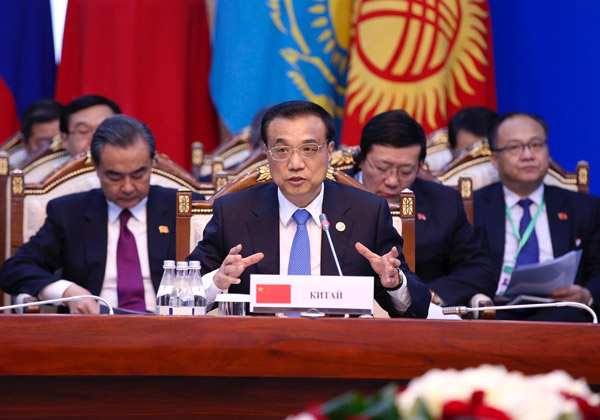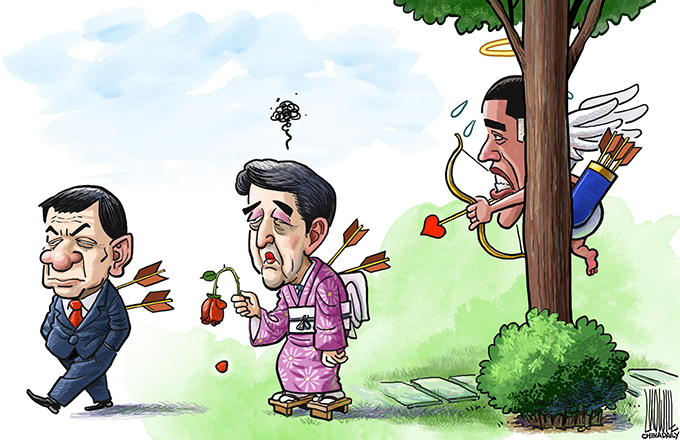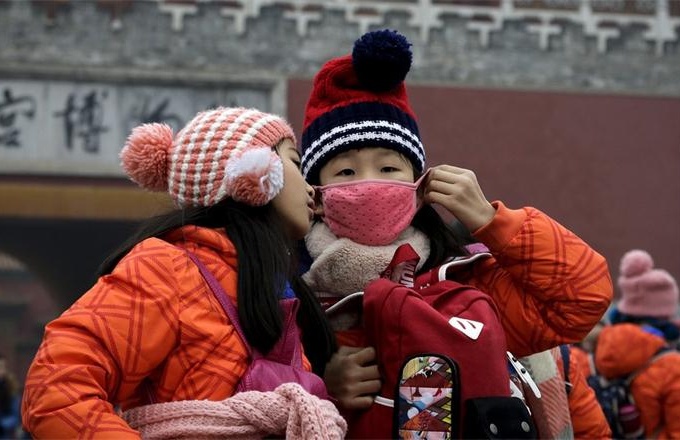'Shanghai Spirit' to deepen cooperation
 |
|
Premier Li Keqiang advocates the establishment of a free-trade zone at the 15th Meeting of the Shanghai Cooperation Organization Council of Heads of Governments in Bishkek, Kyrgyzstan, on Nov 3, 2016. LIU ZHEN / CHINA NEWS SERVICE |
In the 15 years since its inception, the Shanghai Cooperation Organization has developed a new type of international relations, featuring mutual benefit and common development among its member states which have greatly contributed to regional economic development and stability. Upholding the "Shanghai Spirit" of mutual trust, mutual benefit, equality, consultation, respect for cultural diversity and pursuit of common development, Thursday's SCO Prime Ministers' Meeting in Bishkek, Kyrgyzstan, has further deepened pragmatic cooperation in economic and security matters among the member states.
During the meeting, Premier Li Keqiang and other top officials reviewed the cooperation and developments in various fields, and discussed ways to implement the Belt and Road Initiative and other regional cooperation mechanisms.
The premier also proposed concrete initiatives to further deepen SCO cooperation in such areas as finance, trade, science and innovation.
The other SCO members showed interest in measures to boost cooperation in areas such as transport, science and technology, infrastructure construction and environmental protection.
All SCO members are also neighbors. This special geopolitical reality allows a favorable environment to be created for the joint development of countries in the region. The Tashkent Declaration of the 15th Anniversary of the SCO signed at the SCO summit in Tashkent, Uzbekistan, in June reiterated that the member states were committed to further developing good neighborliness, and friendly relations in areas of mutual interest.
Facing complicated security challenges, the SCO has forged a series of mechanisms that have played a very important role in safeguarding regional stability and security. The mechanisms include the 2009 SCO Counter-Terrorism Convention, meetings of chiefs of general staff of the armed forces of the SCO members, and the "Peace Mission 2016" joint anti-terrorism drills.
These efforts will not only strengthen the fight against terrorism, extremism and separatism-to prevent the aforementioned "three evils" from making inroads into the SCO member states-but also reinvigorate Afghanistan, which has applied to become the bloc's member, and prevent the unrest in western Asia to spread to eastern Asia.
As economies of the SCO member states are highly complementary, more efforts are needed to promote major joint projects and create financial platforms of mutual assistance as well as research centers of innovation and high technology, which will help transform the region into a geo-economic plateau with high vitality.
At the meeting of the economic affairs ministers of the SCO member states held in Bishkek earlier last month, China proposed to set up special institutions to facilitate trade and investment in fields such as e-commerce, logistics and financing.
Furthermore, the integration of each member's development strategies will broaden the path of the SCO and promote the overall development of the region. At the Tashkent summit, China promised to facilitate the alignment of its Belt and Road Initiative with the development strategies of other SCO members, and hoped the SCO would play a positive role in this process by creating more cooperation opportunities, which the other SCO members have expressed interest in.
With the appeal for dovetailing each other's development strategies growing among a number of countries in southern and western Asia, the SCO, under the Shanghai Spirit, is expected to develop into a multilateral platform and become an important driving force for a new and balanced world order.


















